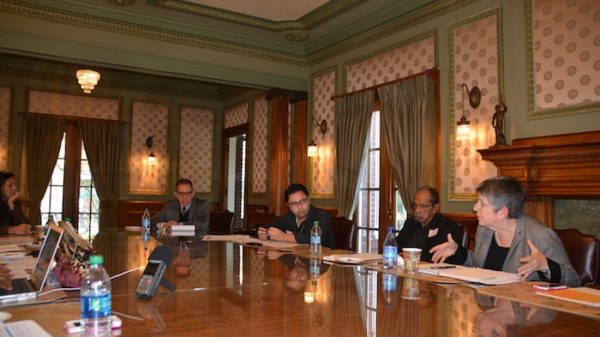In a move to provide lawful pathways and address irregular migration, the Biden-Harris Administration, through the U.S. Department of Homeland Security (DHS), has announced the implementation of new family reunification parole (FRP) processes for nationals from Colombia, El Salvador, Guatemala, and Honduras. These processes aim to promote family unity and align with the comprehensive measures outlined by DHS and the Department of State in April. By expanding safe and orderly pathways while maintaining strong enforcement, the administration seeks to reduce dangerous irregular migration.
The new FRP processes are specifically designed for nationals from Colombia, El Salvador, Guatemala, and Honduras who have family members in the United States that are either U.S. citizens or lawful permanent residents. These individuals, upon approval to join their families in the U.S., can be considered for parole on a case-by-case basis for a duration of up to three years. This parole period allows them to await their application to become lawful permanent residents.
Secretary of Homeland Security Alejandro N. Mayorkas emphasized the importance of these processes in promoting family unity and providing lawful pathways consistent with U.S. laws and values. He highlighted that the combination of expanded safe pathways and strong enforcement has proven effective in reducing dangerous irregular migration to the United States.
Nationals from Colombia, El Salvador, Guatemala, and Honduras who are beneficiaries of an approved Form I-130, Petition for Alien Relative, may be eligible for parole under the new processes. To qualify, beneficiaries must be outside the United States, meet all requirements including screening, vetting, and medical requirements, and must not have already received an immigrant visa. The process begins with the Department of State inviting the U.S. citizen or lawful permanent resident family member who filed the Form I-130. The petitioner can then initiate the process by filing a request on behalf of the beneficiary and eligible family members, seeking advance travel authorization and parole.
Parole will be granted on a discretionary, case-by-case, and temporary basis, based on urgent humanitarian reasons or significant public benefit. The beneficiary must demonstrate that they warrant a favorable exercise of discretion. Individuals paroled into the United States through these processes will generally be eligible for parole for up to three years and can request employment authorization while waiting for their immigrant visa to become available. Once the immigrant visa is available, they may apply to become lawful permanent residents.
The authority to parole noncitizens into the United States temporarily, on a case-by-case basis for urgent humanitarian reasons or significant public benefit, is authorized by the Immigration and Nationality Act. This authority has been utilized in the past to establish FRP processes, such as the Cuban Family Reunification Parole Program established in 2007 and the Haitian Family Reunification Parole Program established in 2014.
The DHS’s announcement of new family reunification parole processes for Colombia, El Salvador, Guatemala, and Honduras represents another step in the Biden-Harris Administration’s strategy to provide lawful pathways and reduce dangerous irregular migration. By prioritizing family unity and implementing comprehensive measures, the administration aims to address the issue of irregular migration while upholding humanitarian values and adherence to immigration laws.








